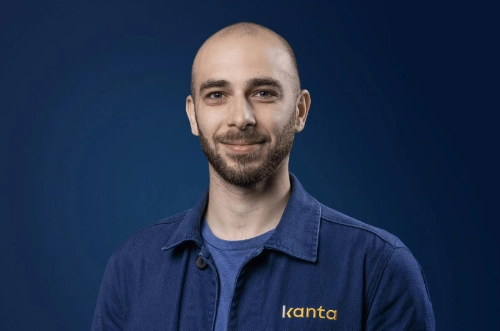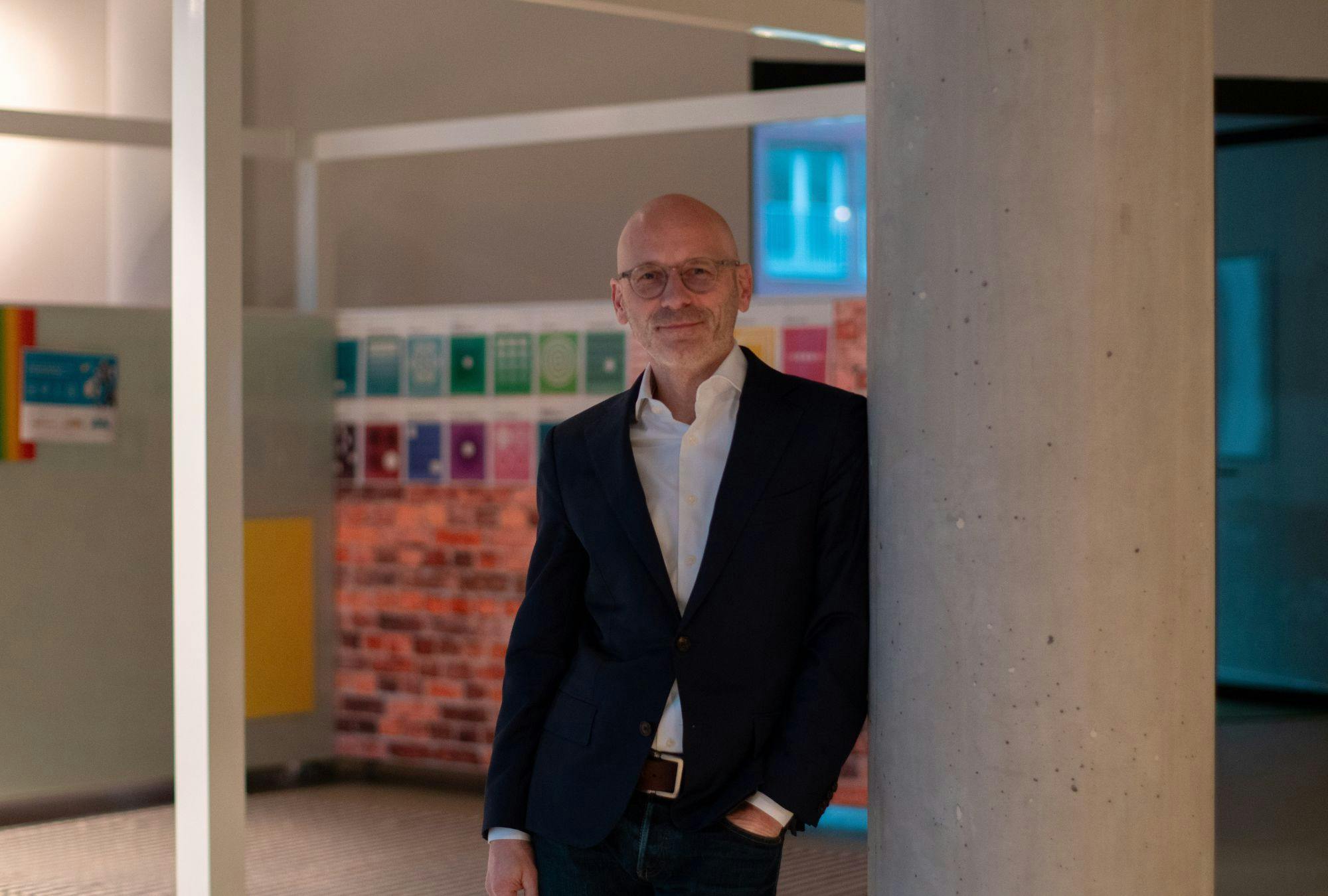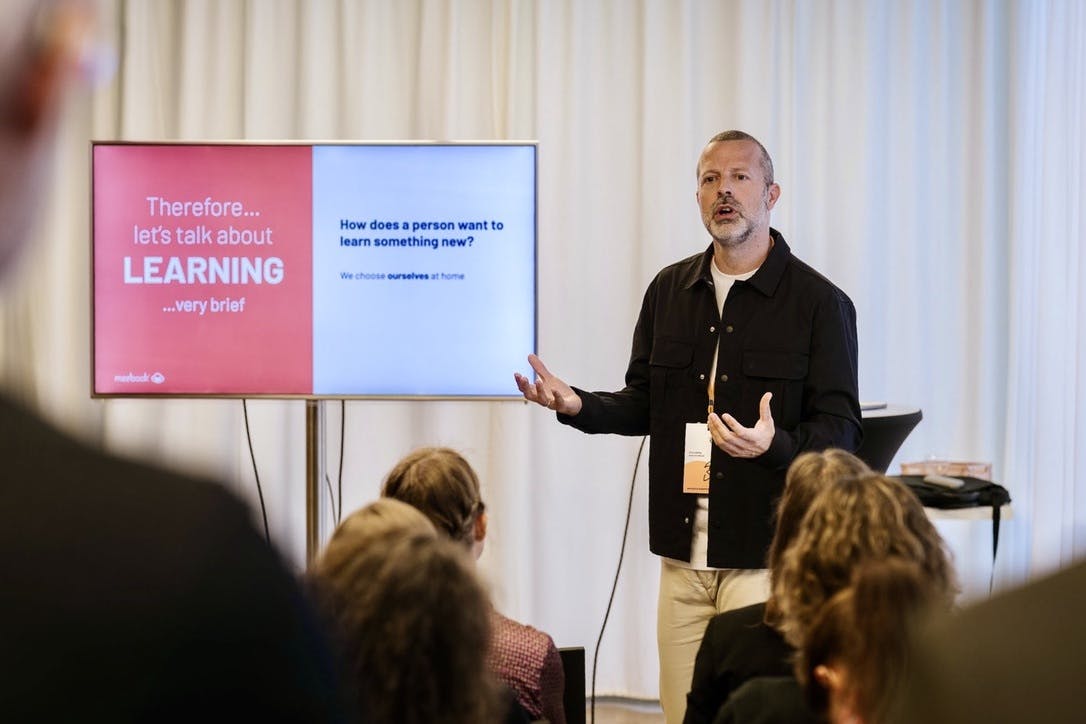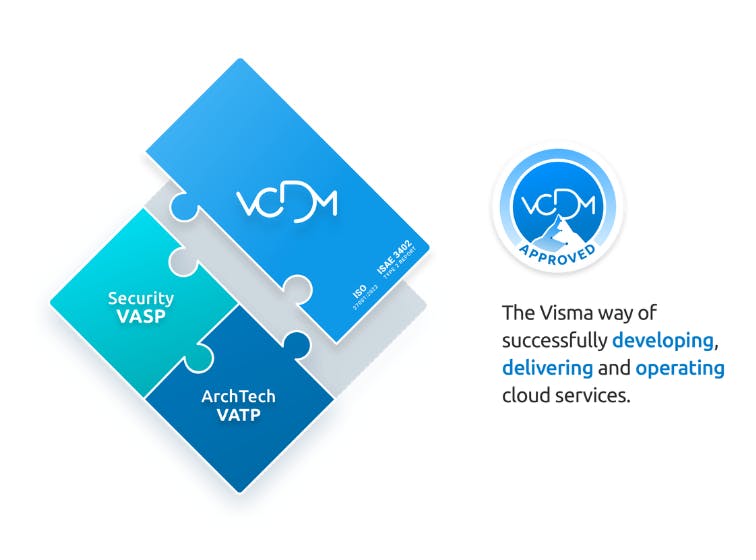Article
Inside Visma's AI strategy
Innovation and development, AI, Business insights
November 26, 2025

Article
Inside Visma's AI strategy
Article
Inside Visma's AI strategy
Innovation and development, AI, Business insights
November 26, 2025
Article
Inside Visma's AI strategy

26/11/2025
min read
Innovation and development, AI, Business insights
Understand the customer
Too many AI projects begin with: We need to do something with AI. Instead, they should be asking: What do customers really need? Focusing on the most pressing customer problems ensures that AI creates real value.
It also helps us avoid getting lost in the fog of AI hype.
“When Visma’s vision is to be the global leader in AI-powered accounting and payroll, it’s essential that we understand customer needs,” says Tinius Alexander Lystad, Visma’s CTO.
Trust is strategic
“AI makes it cheaper and faster to create software, so anyone can build an app or launch a new AI tool overnight,” says Lystad. “We’re competing against countless products people have never heard of. That means trust has become a critical differentiator.”
Visma builds trust into every layer of its AI transformation. All products adhere to the EU AI Act and GDPR, are tested for robustness and safety, and follow strict principles of transparency and accountability.
“When customers say they want software that’s reliable, safe and easy to use,” Lystad continues, “they’re really saying they want to trust it.”
Leveraging our data
Over decades and hundreds of products, Visma has accumulated vast amounts of experience and data. AI turns that knowledge into actionable insights.
“By analysing patterns across industries, regions and business functions, we can provide recommendations that help companies optimise operations and make smarter decisions,” says Lystad.
From pricing advice to spotting potential cash flow issues, Visma’s AI acts as a co-pilot, helping customers run their businesses more efficiently. Making Visma solutions indispensable over the long term.
From AI assistants to AI colleagues
Most business software is reactive, it waits for human input. Visma builds agentic AI: software that takes initiative, completes tasks and acts like a virtual colleague.
“Before AI, we could only automate what we could predefine,” says Jacob Nyman, Visma’s AI Director. “Now, we can delegate entire workflows to AI agents that understand context and adapt to variations.”
The results are already visible across Visma products. Smartscan processes 18 million documents each month, reducing human intervention by up to 50%.
Visma products like GAiA and Nmbrs are evolving from assistants into AI colleagues that handle payroll, accounting and client management tasks end-to-end.
“The goal isn’t just automation, it’s delegation,” says Nyman. “AI that truly works for you means software that can learn, collaborate and scale your work.”
AI at every level
“At Visma, AI isn’t a department or a feature,” says Nyman. “It’s a company-wide transformation.”
To maximise customer value, AI is embedded across every layer of the business. Visma’s four key pillars of AI transformation are:
- AI-powered workforce: Every employee uses AI in role-specific ways, freeing time for higher-value work.
- AI-native products: Software that goes beyond automation, taking on more of the work for our customers.
- AI-assisted product development: AI accelerates coding, testing and analysing customer feedback, making modernisation continuous.
- AI-augmented growth functions: Marketing, sales and support benefit from AI personalisation and automation, to improve reach and customer experience.
The portfolio effect
AI development at Visma doesn’t happen in isolation. With over 180 companies and hundreds of products, experimentation happens everywhere. And learnings are shared across the group.
“The network lets us share successes and failures,” says Nyman. “To avoid repeating mistakes and accelerate learning in the AI race.”
Teams also benefit from partnerships with Google, AWS, Microsoft and OpenAI, giving them access to advanced AI without reinventing the wheel.
The result is hundreds of AI initiatives across the group, where breakthroughs in one product or market quickly multiply value elsewhere.
With this scale, the portfolio effect only strengthens Visma’s competitive advantage in the age of AI.
→ Check out this Voice of Visma episode for more of Jacob Nyman’s thoughts on AI.
→ Read Tinius Alexander Lystad’s article AI for leaders: A practical guide.

About the episode
AITransformation,ResponsibleAI,FutureOfWork,AIstrategy
Voice of Visma
Welcome to the Voice of Visma podcast, where we sit down with the business builders, entrepreneurs, and innovators across Visma, sharing their perspectives on how they scale companies, reshape industries, and create real customer value across markets.
AITransformation,ResponsibleAI,FutureOfWork,AIstrategy

























































































































































































































